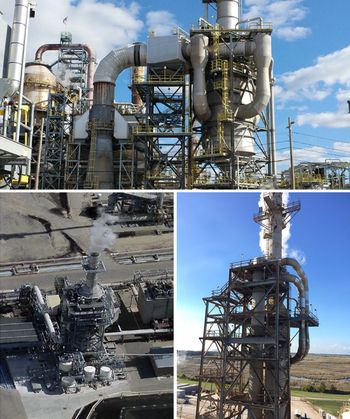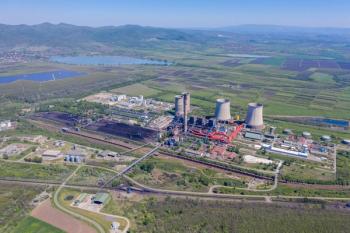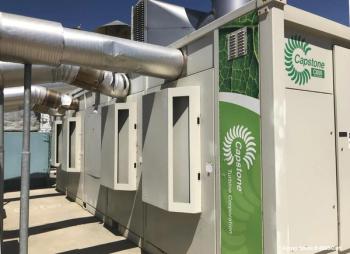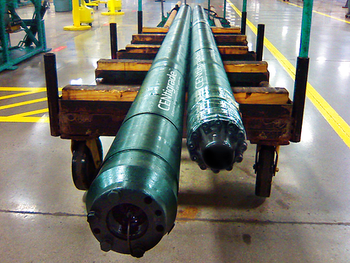
Turbo Tour: Tampa Big Bend Power Station
Turbomachinery International tours the Tampa Big Bend power station in Tampa Bay, a coal-based power plant.
Turbomachinery International recently toured the Tampa Big Bend power station in Tampa Bay, Florida. Owned and operated by Tampa Electric Company (TECO), Big Bend Units 5 & 6 at Apollo Beach, Florida, recently began commercial operation.
This facility has operated for decades as a coal plant. With its coal boilers and steam turbines aging, TECO carefully reviewed the best course for the long term. Project Director Kris Stryker said the price tag to upgrade the boilers and steam turbines would have been too high. And in any case, the legislative trajectory is such that heavy investment in coal equipment might not recoup its investment.
In any case, TECO already had a retirement schedule in place. Unit 2 was retired at the end of 2021. Unit 3 is scheduled for closure at the end of 2023. Of the other two units: Unit 4 will remain in service and is able to run either on coal or natural gas. Unit 1 is undergoing extensive refurbishment as part of a modernization effort. Parts of that old Westinghouse steam turbine will remain, but large sections of it are currently being replaced with GE components.
New combined cycle
Unit 1 is destined to be the final element of a new combined cycle facility that has been erected on site. Two GE 7HA.02 gas turbines, two GE H65 generators, and two Vogt Heat Recovery Steam Generators (HRSGs) have already been installed. The turbines are running in simple cycle mode for the moment. They can potentially burn between 15-20% hydrogen by volume in the gas stream. However, TECO does not plan to use hydrogen in these units at this time.
By September, the work on the Unit 1 steam turbine will be completed and the facility will transition to combined cycle mode. But this is no ordinary combined cycle. It takes about 4,000 feet of steam lines from the HRSGs to reach across an inlet to Unit 1. Stryker said engineers looked at many options and this was the best plan based on TECO’s need to maintain the power supply to the local area.
When completed, the gas turbines within the 1,090 MW combined cycle power plant at Big Bend will be monitored by GE’s integrated Mark* VIe control system. Data collected from sensors throughout the facility will be fed to GE’s Monitoring & Diagnostics (M&D) Center in Atlanta, GA. In addition, the GE controls feed data to an Emerson Ovation system in the central control room near Unit 1, which oversees the entire facility.
“In theory, we are losing capacity by going from 1,200 MW to 1,090 MW,” said Stryker. “But due to much higher efficiency, we will actually produce more MW hours.”
Coal-fired plants have a maximum efficiency of about 47%, and older plants tend to register a much lower number. Combined cycle power plants have surpassed 60% efficiency and some of the most modern facilities claim close to 67% efficiency. Besides efficiency gains and carbon reduction, the gas-fired plants reduce the emissions of mercury, nitrogen oxides, sulfur oxides, and other pollutants, while also using less water than coal plants. Greenhouse gas emissions from units 1 and 2 will be reduced by more than 60%. The amount of coal used at the site will be reduced by 50% – with similar reductions in the amount of dust, byproducts, and traffic related to coal.
Decarbonization ongoing
TECO has been working to lower its emissions since 1999. Since then, Tampa Electric has reduced coal usage by more than 90% and has cut carbon dioxide emissions in half. The Big Bend modernization project is another step towards lower emissions and reducing the overall carbon footprint. The site also holds about 30 MW of solar panels, a small part of TECO’s 800 MW solar portfolio. It has also installed about 10 MW of energy storage on site. The company has set a net-zero carbon emissions target for 2050.
“Decommissioning two of our coal units and replacing them with clean-burning natural gas is another step along the path we have set to achieving net zero across all our operations,” said Stryker.
Newsletter
Power your knowledge with the latest in turbine technology, engineering advances, and energy solutions—subscribe to Turbomachinery International today.




